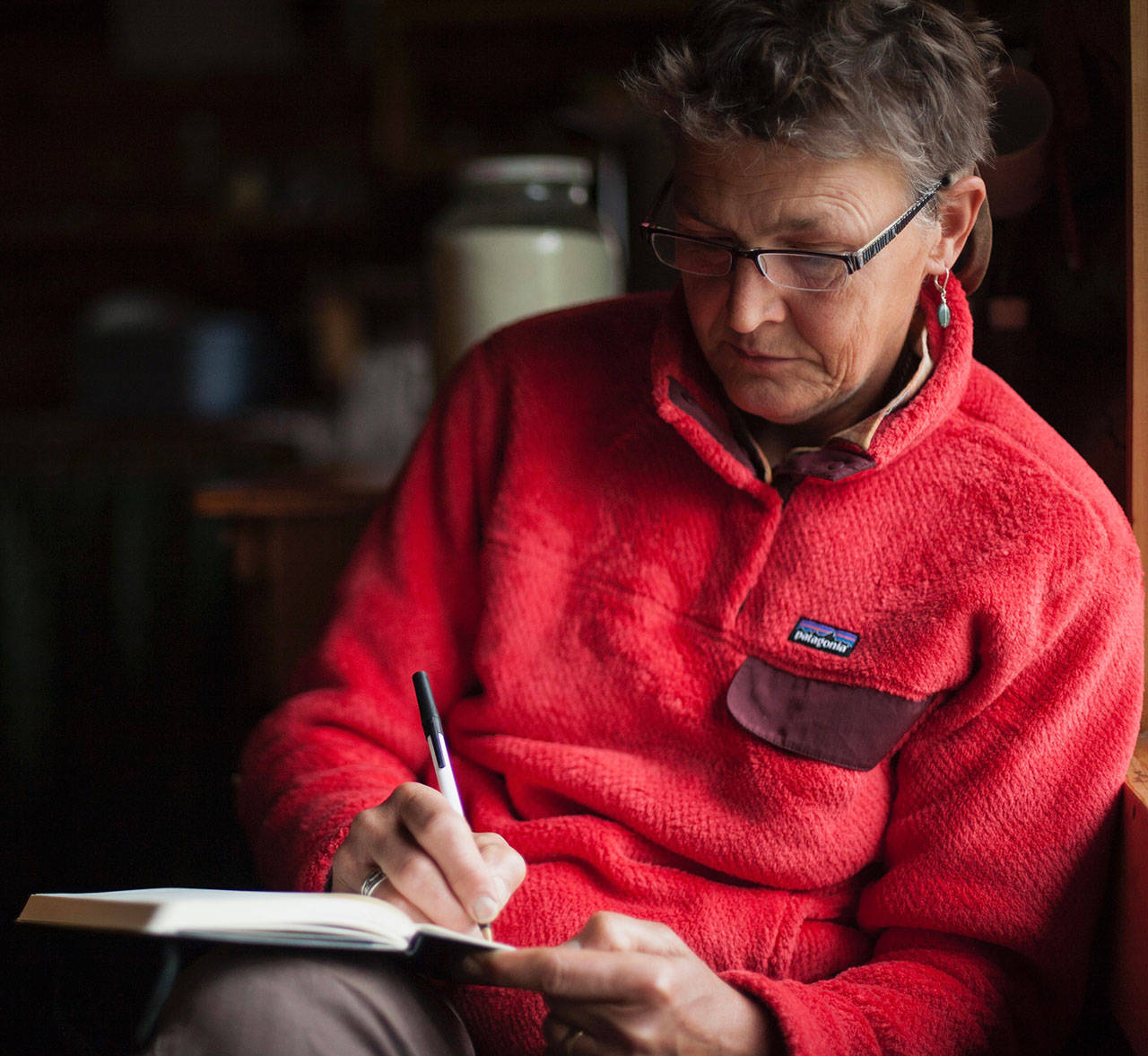Island author Catherine Johnson opens her moving memoir, “Finding Mercy in This World,” with a journal entry she wrote while walking the Camino de Santiago three years ago. She eloquently articulates her experience traveling the path taken by countless pilgrims for 1,500 years as entering “an invisible, timeless, ever-flowing river of souls” seeking what may already be all around them, what they, and she, are simply part of — the “great Mystery.”
From that mystical understanding, Johnson then dives deeply into the finely etched story of her life — radically altered by an early and profound loss and consequently formed by a long search for forgiveness. Hers is a tale that reads with the engrossing ease of fiction but speaks to universal human truths and the mysterious unveiling of mercy. Johnson will sign and read from her new memoir, published by island author Jean Davies Okimoto and her publishing company Endicott and Hugh Books, at 6 p.m. Wednesday, April 4, at Vashon Bookshop.
Johnson, 63, grew up in Indianapolis, Indiana, an only child loved by her parents and a large extended family. Her buoyant guilelessness fairly leaps off the page with scenes from her days as a summer camp counselor, an early participant in Outward Bound and her nascent explorations of freedom. Johnson writes that after she graduated from high school, she was “full of optimism, confidence and the sweet-blind arrogance of youth … in the fall I planned to attend The Evergreen State College in Olympia, Washington. I was excited to leave home, to travel west, to grow up.” But everything changed in a single moment when she was seriously injured and her good friend killed in a car accident. Johnson was driving.
It was 1973, and the solution to tragedy then was not to dwell on it but to move on. Just three weeks after the accident, with a swollen face and her broken jaw wired shut, Johnson drove herself back to her beloved summer camp. She was allowed to return on the condition, set by the priest who ran the Catholic-based organization, that she promise not to ever speak about what happened.
That promise may have shaped her life but what powered it was her buried grief and attendant feelings of culpability. Without a conscious intention, Johnson found herself drawn to a professional path that would constantly put her in positions of responsibility for others’ lives. It was in writing the book that the unconscious elements and the myriad ways mercy showed up in her life were brought into the light.
“I wrote the book as true to my experience as possible,” she said. “I wasn’t very reflective because a) I would have been too terrified emotionally to reflect and b) I had never been taught how to do that. So, I put one foot in front of the other, but as I grew older I felt this continuous knocking on my soul’s door to reflect and figure this out. Now having written the book, I don’t even know how I got through it, I really don’t, but I did. I guess it was all those people who showed up along the way.”
People, she said, like the famous mountain climber Dr. William “Willi” Unsoeld, one of her early teachers at Evergreen and the first guide on her “journey of self-acceptance, forgiveness, and faith.”
Good friends showed up, and they shored her up. She learned plenty from her writing teacher Brenda Peterson, healed emotionally and physically with help from cranio-sacral therapy and experienced the transformative power of love in her long-term marriage to Dana Ilo.
With a deep bow to the inexplicable, Johnson said she carefully chose the word mercy, not forgiveness, for the book’s title.
“Mercy is a hard phenomenon to describe,” she said. “Forgiveness is much more clearcut, but the mercy part wasn’t just that I forgave myself and felt freed up, it was this other additional layer of gratitude for my life that was really deeply moving. Every significant event or person who entered my life at just the right moment — that’s like angels or grace or finding mercy in the world as defined by friends and love and beauty.”


